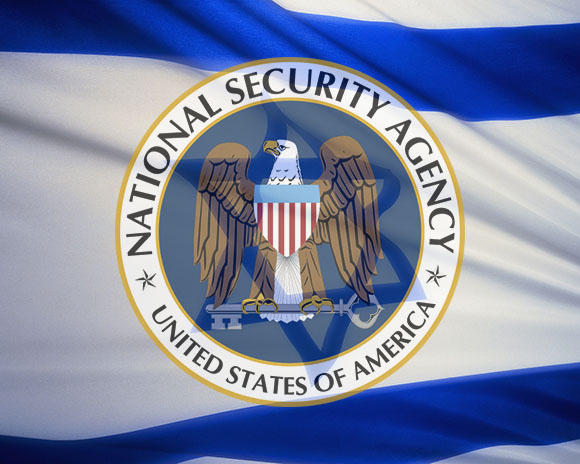The Guardian newspaper has published a top secret document provided by whistle-blower Edward Snowden, that reveals the US National Security Agency (NSA) shares “raw intelligence data” with Israel, without first removing information about US citizens.

The document that Snowden provided is a memorandum of understanding (MOU) between the NSA and its Israeli counterpart the Israeli Sigint National Unit (ISNU) “pertaining to the protection of US persons.”
The MOU discloses that Israel receives raw signal intelligence (“raw Sigint”) from the US which includes unevaluated and unminimized transcripts, gists, facsimiles, and voice and Digital Network Intelligence metadata and content.
‘Minimization’ is the process that an intelligence agency carries out to safeguard the privacy of its citizens prior to sharing information with a foreign agency, according to the report.
Israel receives such “unminimized raw signet” according to the MOU and is required by it to handle the information according to US law but according to The Guardian the document does not back up these rules by any legal obligations on Israel.
The memorandum of understanding, which the Guardian published in full, allows Israel to retain “any files containing the identities of US persons” for up to a year.
The agreement requests only that the Israelis should consult the NSA’s special liaison adviser when such data is found.
Notably, a much stricter rule was set for US government communications found in the raw intelligence. The Israelis were required to “destroy upon recognition” any communication “that is either to or from an official of the US government”.
Such communications included those of “officials of the executive branch (including the White House, cabinet departments, and independent agencies), the US House of Representatives and Senate (member and staff) and the US federal court system (including, but not limited to, the supreme court)”.
It is not clear whether any communications involving members of US Congress or the federal courts have been included in the raw data provided by the NSA, nor is it clear how or why the NSA would be in possession of such communications. In 2009, however, the New York Times reported on “the agency’s attempt to wiretap a member of Congress, without court approval, on an overseas trip”.
The NSA is required by law to target only non-US persons without an individual warrant, but it can collect the content and metadata of Americans’ emails and calls without a warrant when such communication is with a foreign target.
US persons are defined in surveillance legislation as US citizens, permanent residents and anyone located on US soil at the time of the interception, unless it has been positively established that they are not a citizen or permanent resident.
The document mentions only one check carried out by the NSA on the raw intelligence, saying the agency will “regularly review a sample of files transferred to ISNU to validate the absence of US persons’ identities”. It also requests that the Israelis limit access only to personnel with a “strict need to know”.
Israeli intelligence is allowed “to disseminate foreign intelligence information concerning US persons derived from raw Sigint by NSA” on condition that it does so “in a manner that does not identify the US person”. The agreement also allows Israel to release US person identities to “outside parties, including all INSU customers” with the NSA’s written permission.





